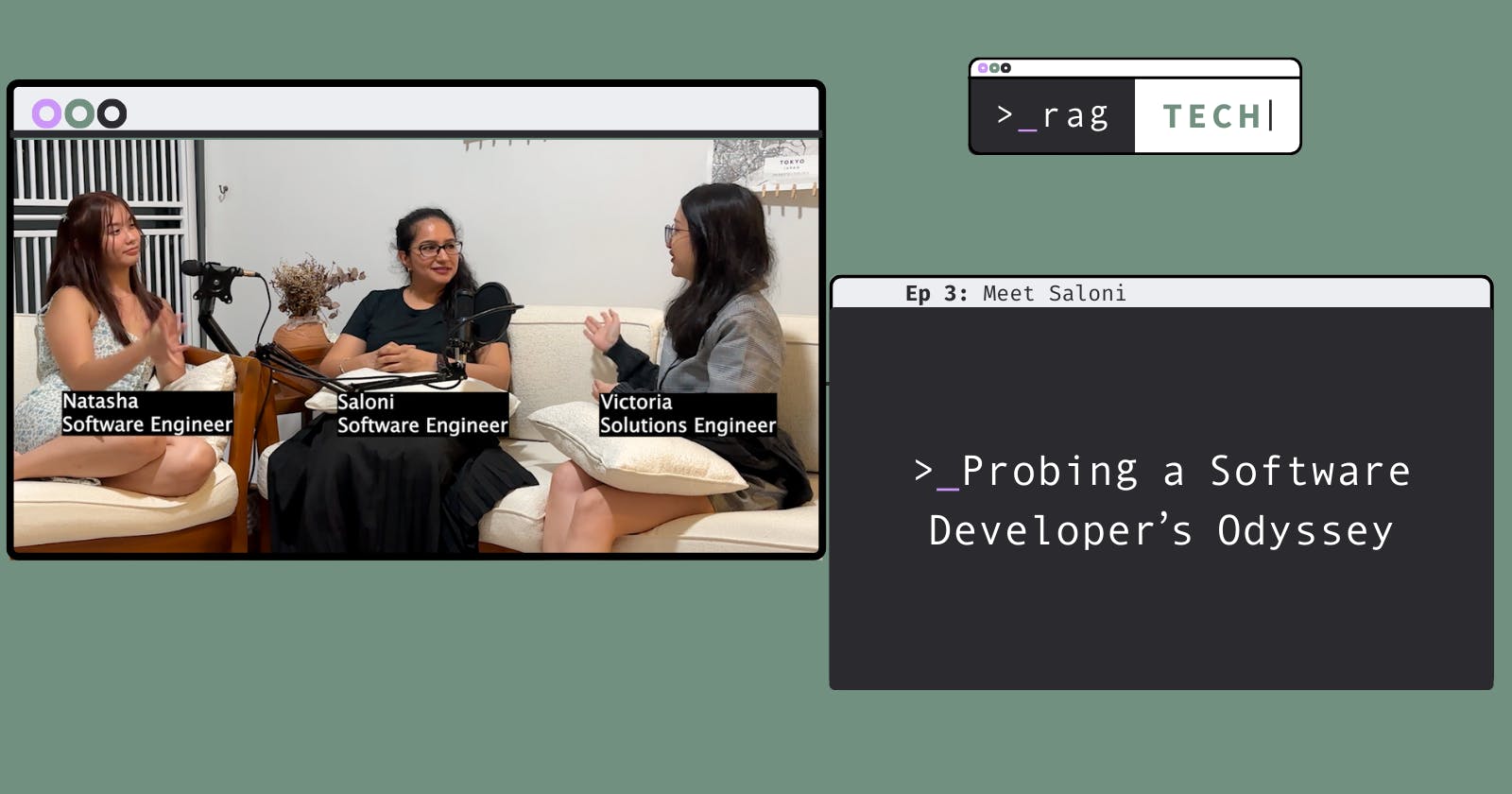In this episode we embark on a journey through the illustrious career of Saloni, the seasoned software developer in the RagTech podcast team. Join us as we delve deep into Saloni's extensive experience, celebrating her triumphs, and gaining valuable insights from her remarkable journey in the dynamic world of software development.
This article is a summary of our 3rd episode of ragTech! If you want to get the full experience listen onSpotify or watch on YouTube!
Software Developer Vs Software Engineer
Saloni's opinion is that there is no difference between the two. Different companies call their employees differently. But Saloni herself prefers to be called a Developer because Engineer, to her, is more hardware/mechanical related. However, we have read that typically the difference comes when comparing building of the software - whether there is scale in mind. Our take is that there is no definite difference except for what is personal preference.
Saloni's Software Developer Career Journey
Saloni graduated with Computer Science degree. Since then she has been working in core software development roles. Just so happened that every 2 years she has switched companies. This was intentional, there was a better opportunity and no room for growth usually when a switch is required. She has been fortunate enough to move multiple different industries - government, edutech, IoT to now fintech.
She loves being in fintech because of her love for money and tech!
Saloni also explained that she is a fullstack developer - which means she is able to work on frontend (client facing websites) as well as backend (databases, server-side). But she leans towards backend a little more. According to her, all fullstack developers lean towards one or the other.
Being Interview-Ready
Saloni believes in being interview ready in the sense that she does not want to be at the mercy of any employer. She started a series of sessions hosted on WomenWhoCode Singapore's platform. By the way, if you are interested do sign up as a volunteer on the above website or stay tuned to our events on Meetup.
During covid many software developers lost their jobs among others, and it is very tedious to suddenly start preparing for a Software Developer interview (algorithms, computer science concepts revision) - it usually is a 3 month effort to even be ready for an interview. Therefore, Saloni started these sessions of mock interviews where she would practice her interviewing skills and also be up to date as an interviewee. She believes Teaching is the best way to learn, so she is always sharing her knowledge with the community.
With this she learnt what it takes to be an above average software developer and then gave an example in the podcast where she she was able to ask the interviewer some tough questions because she knows she did well in the interview and then went on to interviewing the interviewer. She asked “do you (as the tech lead) believe in mentorship among the team or more self-learning?” These kind of questions help her gauge the kind of employer she is dealing with and how her experience will be in the company.
Robust Code
In the episode, Victoria asks about how to explain robust code to a non-programmer. Saloni explained that robust code would mean code that gracefully handles all scenarios and does not break with edge cases.
Also, longer code is not necessarily bad code, it might mean that it’s more modularised or easier to understand. It’s a common misconception among non-programmers that shorter code is better code.
Conclusion
We hope you enjoyed ep3! We discussed a lot more that we did not mention in this article. We will be going into a lot more topics soon! Do leave your thoughts or any feedback in the comments below! What are some topics you would want us to talk about or cover? What are some areas we could improve on? Feel free to let us know!
✨Follow us on our socials so you don't miss the next episode!

